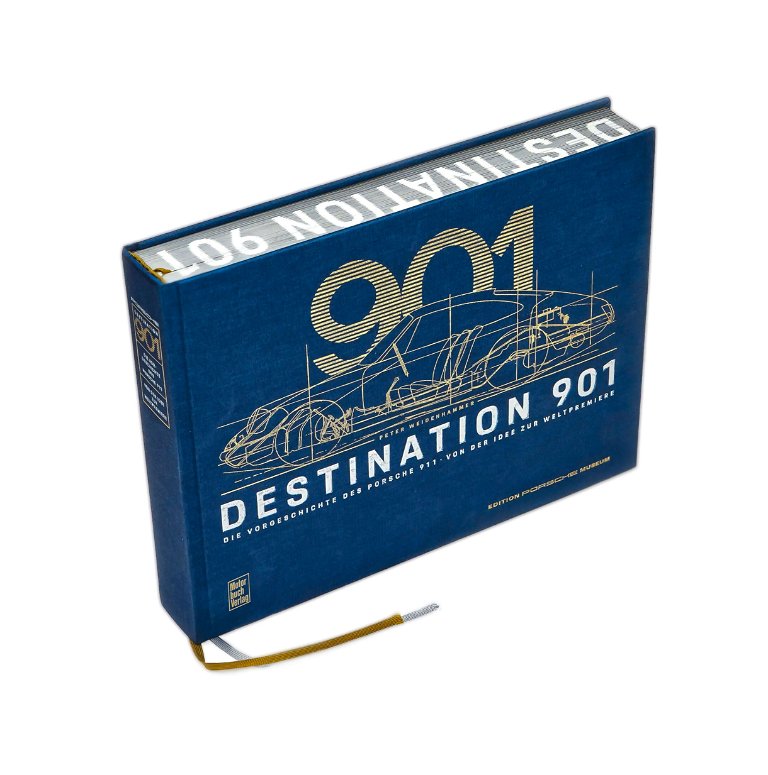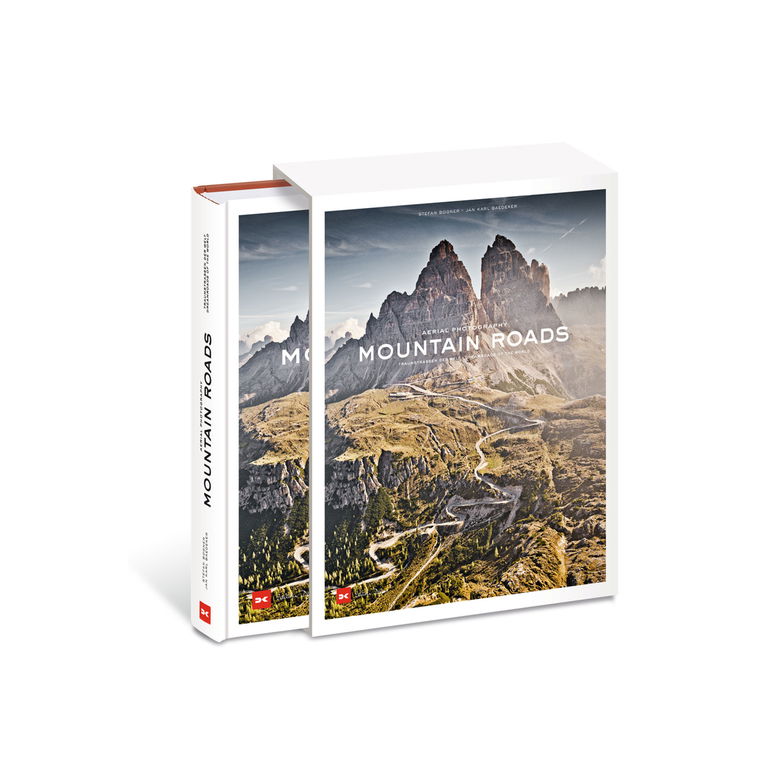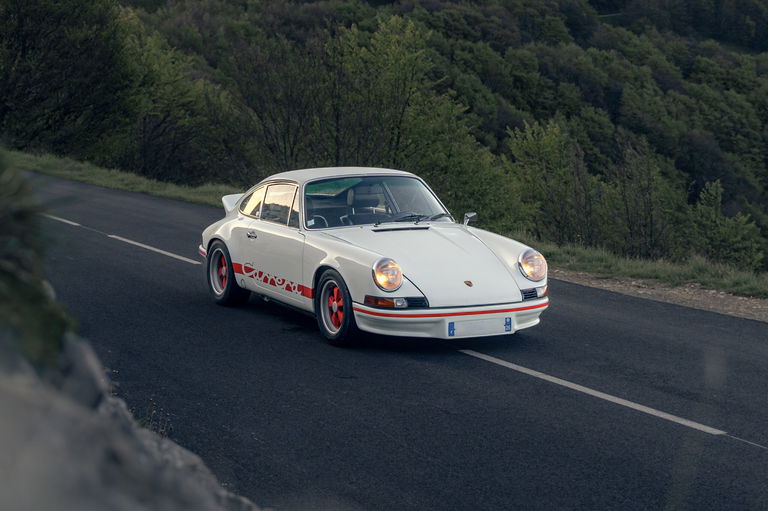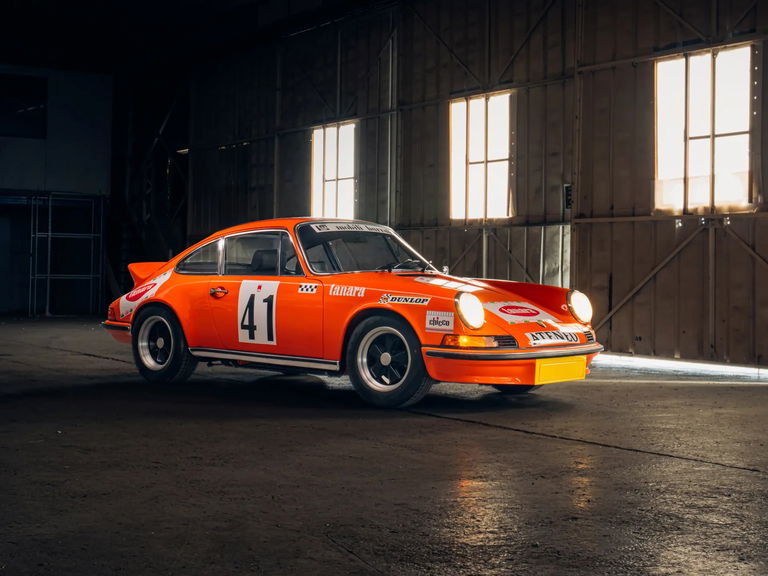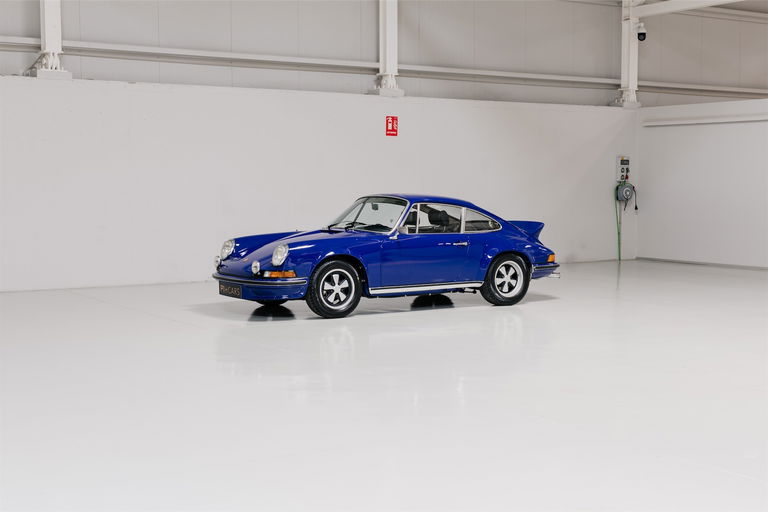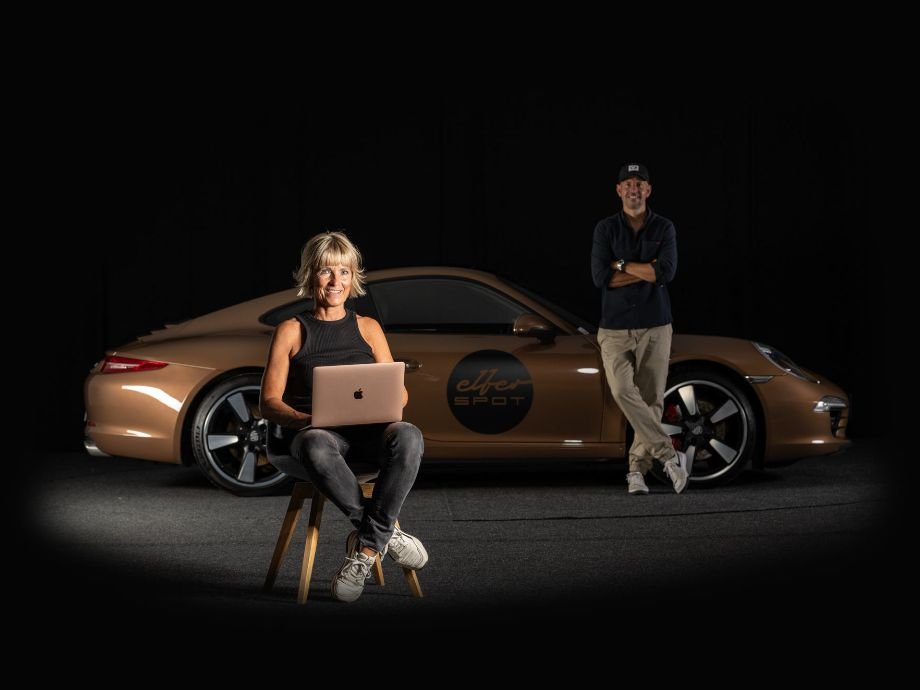Chassis No. 9113601572 – Engine No. 6631531 – Transmission No. 7831523 – Production No. 1038730
At first glance, “homologation” might seem like a dry formality—just another rule in the racing world’s dense regulatory playbook. But for those who know, it marks the birthplace of some of the most exhilarating road cars ever built. To homologate the 911 Carrera RS for FIA Group 4 GT competition, Porsche originally planned a production run of just 500 examples. Understandably, the company was hesitant—only about two dozen ultra-light 911 Rs had found buyers six years earlier. To meet regulations without repeating past missteps, Porsche devised a clever strategy: each Carrera RS was first constructed in stripped-down RSH (Homologation) form and driven to a weighing station to document its minimal curb weight. After satisfying FIA requirements, the cars were returned to the factory and optioned with M471 Lightweight or M472 Touring trim for road use. Internal memos revealed Porsche’s line of reasoning: “There must be no suggestion that this car is a stripped-out or lightened model.” They had learned their lesson from the lukewarm reception of the 911 R.
When the Carrera RS 2.7 made its debut at the Paris Motor Show on 5 October 1972, demand far exceeded expectations—all 500 units were sold by the end of November. Surprised by the overwhelming response, Porsche authorized a second batch of 500, which was completed by March 1973. With 1,000 units built, the RS achieved homologation for both Group 3 and Group 4 racing. In total, Porsche ultimately produced 1,580 examples, including 17 in the bare-bones RSH configuration, 55 factory RSRs (M491), 200 Sports Package (M471) which are commonly known as “Lightweights,” and the remainder as RS Tourings (M472). Each variant of the Carrera RS holds a special place in Porsche history, but today, over 50 years later, it’s the M471 Lightweight model—and especially those rare, mostly unrestored examples with underlying authenticity that most influence their desirability among collectors and drivers alike.
Constructed in June 1973, this M471 Lightweight, chassis number 9113601572, is a very late third series example built as the 19th Carrera RS from the end and the third to last Lightweight. Chassis 1572 was finished in the ultra-rare color of Glacier Blue; an incredible special-order shade it still wears today. Just 16 Carrera RS were so ordered, comprising just one percent of total 2.7 RS production! To further underscore the rarity of Glasurblau on this model, it is one of only two M471 Lightweights ever specified in the color from the factory. Further selections included a Black-upholstered interior with lightweight seats and an optional limited slip differential—a near requirement for a rennsport-derived car like the RS Lightweight.
According to the seminal Carrera RS by Thomas Gruber and Georg Konradsheim, the RS Lightweight was picked up from the factory in an unwaxed state and sold through Glöckler Porsche of Frankfurt, West Germany. Its factory-issued Pflegepass service book reveals its first owner was Jürgen Krzikalla of Berlin who took delivery on 23 July 1973. Impressively, this well-documented example includes a copy of its original German Fahrzeugbrief that records that its second owner, Udo Schlüter of Lünen, Germany, later acquired the Lightweight in September of 1975. Reflecting his sporting mindset, Schlüter, who went on to contest the Nürburgring 24 Hours three times in the 1980s, added a roll bar and wider wheels to the 2.7 RS Lightweight, modifications recorded in its period registration documents. Schlüter attended local slalom events in his Lightweight and, at some point, is noted to have damaged the right-side front fender, necessitating a replacement. Schlüter parted ways with chassis 1572 in 1978, selling it to the owner of Reform-Rohmann, a health food company based in Dortmund with approximately 40,000 kilometers at the time.
Just a year later, the car would enter the long-term ownership and care of well-known Porsche collector Klaus Völkmann, an early member of the Porsche Club Westfalen—the first Porsche Club in the world. A copy of the purchase agreement shows it was sold for DM 12,000 to Völkmann who would go on to retain the then six-year-old Carrera RS for an impressive 36 years! In his time with the car, Völkmann would treat number 1572 to a full exterior repaint in its original shade of Glacier Blue, placing approximately 1,000 km on it before deregistering it from road use on 29 June 1984.
In 2015, the rare RS Lightweight emerged from storage, joining the Belgian collection of its fifth and current owner of the past 10 years with c. 72,000 km recorded on its odometer. From 2015 to 2017, the car was comprehensively recommissioned rather than fully restored, ensuring the preservation of many original details retained by chassis number 1572 for 50-plus years. An inspection confirms that the car retains many of its original features including the glass, carpeting, first paint within the trunk and engine compartment, correct transmission tunnel bracing, and the aluminum-framed “ducktail” rear spoiler, among other RS specific details. This recommissioning work included a partial overhaul of its original matching-numbers Silumin-alloy 2.7-liter MFI flat-six—a rolling change from the more commonly seen magnesium case material that began in May 1973—together with a brake-system and suspension overhaul and exterior paint repairs, all conducted by specialist shop Aperta of Dörentrup, Germany. Most recently, in October 2025, this Lightweight RS received a fresh service including new correct N-spec Pirelli CN36 tires. Invoices for parts, repairs, and service work completed under current ownership totaling over 50,000 € are on file and available for review.
Given the sporting nature of the model and its almost immediate collectability, it is extremely rare to uncover a 1973 Carrera 2.7 RS such as this that has been maintained without the need for a full restoration. The odds of locating an RS such as this in a rare color? Even harder. M471 Lightweight? Practically unheard of. A matching-numbers car that combines all of these elements? Seemingly impossible! Yet this is the history of 2.7 RS Lightweight chassis number 9113601572, a compelling, well-documented example of the iconic Porsche rennsport model that any collector of fine competition-derived sports cars will savor.
Continue reading




























